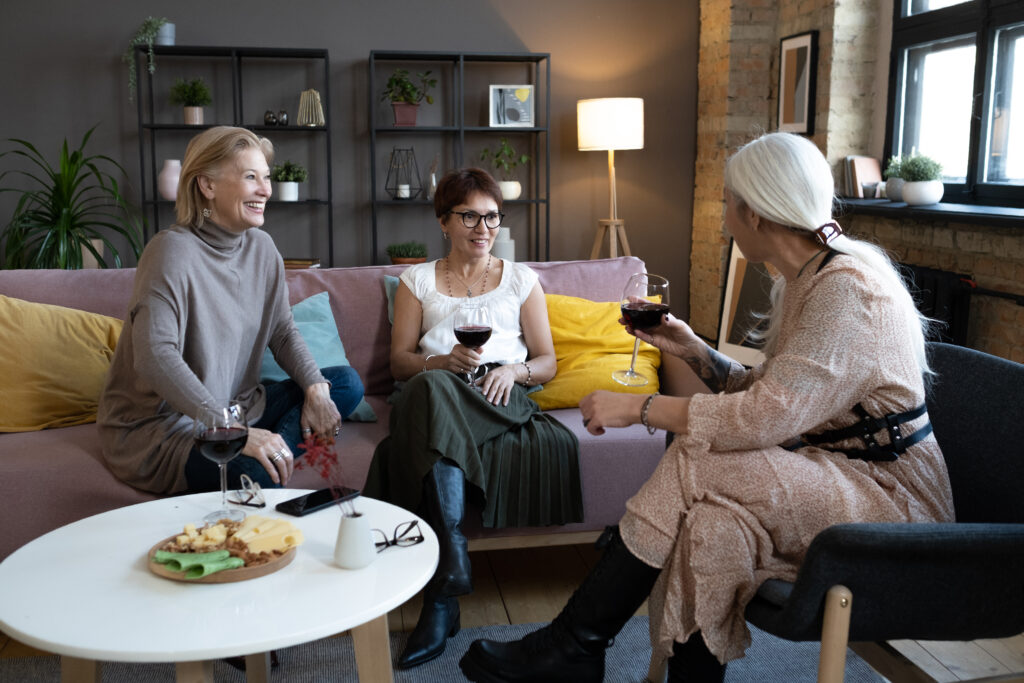Menopause in social context
All women and people with working ovaries will experience menopause. It’s a normal part of getting older. How we feel during menopause can be different for each person. It can even change for the same person. Where we were born and where we live now can also influence our experience of menopause.
In Western countries some women experience more bothersome menopause symptoms than those in other parts of the world. But even in places like Australia, most women adjust to the changes of menopause well and don’t find them too troubling. Some even appreciate not having periods or having to worry about pregnancy.
In comparison to some countries, where menopause is viewed as normal or a positive transition to becoming a respected older woman, the way people in Western countries think about menopause is less positive. These views may have been shaped by factors including stigma, medical practices, and the pharmaceutical industry. For a long time, menopause in Western countries was linked with losing one’s femininity and fertility, hormone ‘deficiency’, decline, and negative views about women and ageing.
In the second half of the 20th century, pharmaceutical companies and doctors promoted Menopause Hormone Therapy (MHT) as a medical treatment for menopause and for its ‘anti-ageing’ properties. But this meant that other helpful ways to deal with menopause weren’t explored much.

Fortunately, things are getting better. MHT is still used, but mostly for those under 60 who have more troublesome symptoms, particularly hot flushes and night sweats. There are also other ways to help women with troublesome symptoms.
People are also talking more openly about menopause. It’s becoming a regular topic in the media and in some workplaces, there’s a push to better support women who are experiencing troublesome symptoms.
Yet, there is still more work to do. We need better training for doctors about menopause. We also need more work environments that are ‘menopause friendly’. Menopause for trans or gender diverse people is not well understood, so more research is required.
We also need to empower women to navigate menopause as well as possible. This includes:
1. Access to high quality, unbiased information
2. Access to an informed doctor able to listen with empathy and offer treatment if needed
3. Tools to support decision-making
4. A supportive work environment and advice on what women might ask for and what they are entitled to
5. Challenging stigma around menopause
To learn more about menopause, keep reading. All our advice is based on the latest information and will be updated as needed.
Australasian Menopause Society (2017) Menopause what are the symptoms?
Australasian Menopause Society (2019) Lifestyle and behavioural modifications for menopausal symptoms.
Australasian Menopause Society (2022) What is menopause?
Alspaugh A, Im E-O, Reibel M, Barroso J (2021) The reproductive health priorities, concerns, and needs of women in midlife: a feminist poststructuralist qualitative analysis. Qualitative Health Research. 31(4): 643-653
Calvaresi E, Bryan J (2003) Symptom experience in Australian men and women in midlife. Maturitas. 44(3): 225-36
Cheung AS, Nolan BJ, Zwickl S (2023) Transgender health and the impact of ageing and menopause. Climacteric. 26(3): 256-262
Continence Foundation of Australia (2021) Who it affects
Glyde T (2021) How can therapists and other healthcare practitioners best support and validate their queer menopausal clients?. Sexual and Relationship Therapy
Haggan M (2019) Breaking the taboo: the real story of menopause. AJP: The Australian Journal of Pharmacy. 100(1181): 44-48
Health Talk Australia (2023) Early menopause experiences and perspectives of women and health professionals
Hickey M (2022) Normalising menopause. The British Medical Journal. 377(e069369)
Hoga L, Rodolpho J, Gonçalves B, Quirino B (2015) Women's experience of menopause: a systematic review of qualitative evidence. JBI Database System Rev Implement Rep. 13(8), 250-337
Lobo RA, Gompel A (2022) Management of menopause: a view towards prevention. The Lancet: Diabetes and Endocrinology. 10(6): 457-470
Magraith K, Stuckey B (2019) Making choices at menopause. Australian Journal of General Practice. 48(7): 457-462
Multicultural Centre for Women’s Health (2023) Menopause fact sheets in eleven languages
My Meno Plan (2020) What if I am transgender or non-binary?
North American Menopause Society (2023) Instant help for induced menopause
North American Menopause Society (2023) Urinary incontinence
Philpott L (2017) OTC: Women's health: a time for change: post menopausal health. AJP: The Australian Journal of Pharmacy. 98(1159)
Philpott L (2022) Menopause: supporting women in midlife and beyond. AJP: The Australian Journal of Pharmacy. 103(1213): 54-56, 58